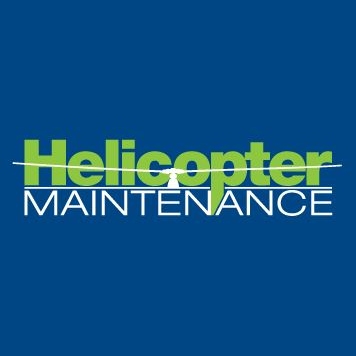
Mediocrity - Should We Accept it as the New Normal?

I am of that generation that I jokingly refer to as B.C. (before computers). My generation did not wear helmets and kneepads when we rode our bikes. We drank water out of the garden hose and did not catch any diseases and we did not need a warning on a baby stroller to remind us to “not fold the stroller while the baby was still in it!” No, I am not joking.
As I have gotten older, I have gone from a dad with young children to a dad of young adults, and now a dad of young dads with children of their own. Yes, I am a grandfather and quite happy about that. In progressing to the role of a grandfather, I have become dismayed to see that mediocrity surrounds us and, in too many cases, it appears to have been accepted as the new normal. As helicopter maintenance professionals, can we subscribe to this view of normalcy? I hope you will join me with a resounding no.
On a scale of one to five, with one being almost brain dead, and five being able to walk, talk, breathe and think rationally all at the same time, a tremendous number of individuals in the workplace would score a three … satisfactory or mediocre, however you want to call it.
What is wrong with being satisfactory, you ask? I don’t know what the grading system is in use today at learning institutions. When I was in college, a grade of C was satisfactory. Do you think that is good enough? If we need open heart surgery, would we prefer a surgeon who got a final grade of C or A upon graduation from medical school? How about the pilots who fly our helicopters? Would we prefer to work with the ones who completed their flight training near the bottom or the top of their class?
Then there are we helicopter maintenance professionals. Are we personally okay with telling ourselves and our company that the maintenance action we just signed off was good enough? Are we okay with mediocrity? Are we going to do just enough to meet the regulations or are we a cut above?
Can we afford to be mediocre In what we do and whose lives depend on how well we do it? No, mediocrity is never “good enough.” What can we do in what we do to convince those working with us that they should be likeminded?
Here are some thoughts to ponder:
Everyone has one skill or another at which they are particularly good. Even if they are not a master at it, they can still choose to hone their skills.
Mediocrity only happens when we settle for it. If we settle for mediocrity, we eventually become mediocre no matter how talented we are. If we choose to settle for something lower than our expectations, we will always achieve less. Simply put, this means that we can avoid mediocrity if we choose not to settle for mediocrity.
Is mediocrity in the workplace a symptom of an organization’s culture or design, individual choice, or bad management? Could it be a combination of all these factors? Is the remedy for mediocrity dependent upon the cause?
Are we content to say that something we did was “good enough?” Does that mean we could have done better?
Mediocrity breeds contempt. A culture of mediocrity systematically destroys the confidence and self-esteem of individuals who are exceptional by ostracizing them for going above and beyond. Eventually, those individuals grow tired of that culture and leave, or will lose the spark that could have led to great things.
Mediocrity fosters a culture of “yes.” In an environment where mediocrity is the standard, it’s easy to surround ourselves with people who are quick to dole out compliments, but would rather bite off their tongue than point out something that could be done better. If our views are never challenged, sooner or later we will find ourselves in a situation with only our ego and self-importance to blame.
When we work in an environment that gets by on “good enough,” even pats itself on the back for not expending a single ounce of effort more than was necessary to “get the job done,” it’s easy to find ourselves beginning to settle for the same. Don’t!
We should never lose the sense of pride we get from doing our very best. If we opt for “good enough,” we will always wonder if the outcome would have been different had we done our best. In doing our best, we should always encourage and help those we work with to also do their best. In the world of helicopter maintenance, “good enough” is never good enough.
